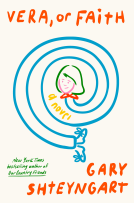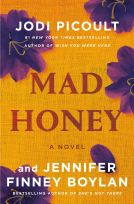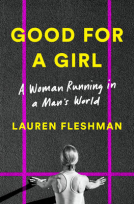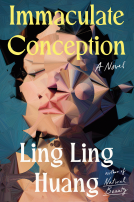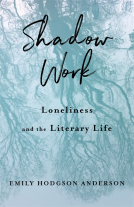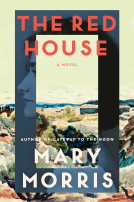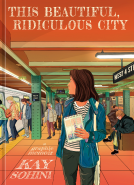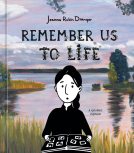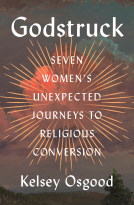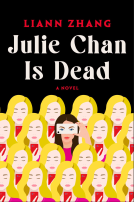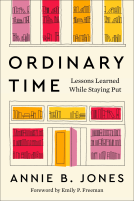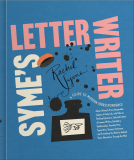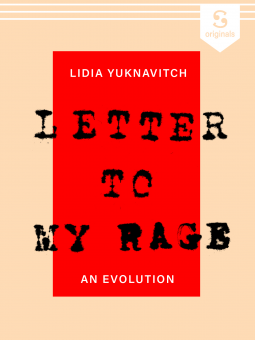
Letter to My Rage
An Evolution
by Lidia Yuknavitch
This title was previously available on NetGalley and is now archived.
Send NetGalley books directly to your Kindle or Kindle app
1
To read on a Kindle or Kindle app, please add kindle@netgalley.com as an approved email address to receive files in your Amazon account. Click here for step-by-step instructions.
2
Also find your Kindle email address within your Amazon account, and enter it here.
Pub Date Aug 25 2020 | Archive Date Mar 17 2021
Scribd | Scribd Originals
Talking about this book? Use #LettertomyRage #NetGalley. More hashtag tips!
Description
Lidia Yuknavitch has described a writer as “a locus through which intensities pass.” The passions Yuknavitch has brought to bear in her bestselling novels The Book of Joan and The Small Backs of Children and in her searing memoir The Chronology of Water are a testament not only to her outsize powers as a writer but to her daring, a readiness to upend the status quo and the expectations people have of her as a woman, artist, and citizen. And now, when it’s become undeniable that our societal norms are not merely unjust but, for too many Americans, deadly, when public anger is at an all-time high, who better than Yuknavitch to help us acknowledge this moment—in all its horror, absurdity, and pain? She does so here in a direct address to her rage.
Letter to My Rage opens in a clinic where the author is waiting to be tested for COVID-19 antibodies. A sighting of the unmasked face of the president on the clinic TV makes her travel “beyond anger” to seethe at an administration ill-prepared to battle a pandemic or confront the racial and economic disparities that ensure vulnerability not just to disease but to a host of human brutalities. And she doesn’t stop there—she can’t. Throughout her life, rage, rather than destroying her, has transformed and compelled her. It was rage that forced her to claim her body: its blood, heat, and power; that ushered her into a world of ideas; and that would show her that where the political and the personal intersect, art flourishes, community and solidarity are found, and change begins. With the murder of George Floyd, her rage reaches an apotheosis. She joins the protests and asks that if men’s anger is frequently used to reinforce an unequal system—as in the grotesque spectacle of a white man’s knee on a Black man’s neck—how can women’s be used? How can her own? Can it be as constructive as it is destructive? Can it create something that was not there before and not just for her? As she sits in that waiting room, she knows the answer is in the body that’s contained her rage for so long, in her very blood; it can offer protection, fuel for others’ activism, a chance for a cure.
This incendiary, cathartic account from one of our most fearless writers urges us to reassess and reclaim one of our most intense emotions during unrelentingly intense and troubling times.
Available Editions
| EDITION | Ebook |
| ISBN | 9780194411163 |
| PRICE | |
Featured Reviews
Lidia Yuknavitch is an amazing writer. Her novel "The Small Backs of Children" is one of the best I've ever read. Her way with words is beautiful and her metaphors are so very real.
"Letter to My Rage: An Evolution" is a feminist exploration of women's anger and politics. She points out how the year 1991 - with the riots after the cops who beat Rodney King nearly to death were found not guilty of using excessive force and with Anita Hill's testimony about sexual harassment from Clarence Thomas still not enough to stop him from being confirmed to the highest court in the country - mirrors recent history. The death of George Floyd and countless other people of color at the hands of police is even more prevalent today. Christine Blasey Ford testified about how Brett Kavanaugh sexually assaulted her, but he now sits on the highest court with Clarence Thomas.
Yuknavich talks about her personal rage. When she was younger it was directed toward her father and caused her to act out and rebel. In college, her rage at the events of 1991 caused her to become an activist, feeding the homeless and and fighting for civil rights. As an adult, now much of her rage is aimed at the government - Trump, his allies, the lack of response to COVID-19 - and she plans to use her rage to help people once again by being tested for Coronavirus antibodies to see if she can donate plasma to others.
This letter to her rage is a beautiful and powerful example of how the personal is political. Everyone in the US should read it.
 Leslie N, Reviewer
Leslie N, Reviewer
Letter to My Rage can be read in less than an hour, but, in it, Yuknavitch encompasses a lifetime of injustice and fury that, because she is a woman -- we are women -- has boiled and built inside, with occasional opportunities for release, for too long as white male power has run the show into the ground. Into hell. Letter to My Rage is a call to action, without being in any way a polemic. As always, Yuknavitch's prose is muscular and alchemical in that it invokes the reader's own dark, dangerous anger, calls on past "mistakes" that weren't mistakes at all, and yanks her into the present. Today, right now, our leaders stand by and watch as hate reasserts itself, out in the open, and the murder of innocents -- caught on video -- somehow goes unpunished. As misogynist pigs assault women, then cry injustice when called out on their crimes, but still attain the highest offices in our country. Some of them for life.
Letter to My Rage should be required reading for all women, especially the young ones who want to wait it out, "influence" on the Internet, and who think our screams have nothing to do with them. That they are safe.
They are not. We are not. We are filled with red rage, and, you know what? We've fucking earned it.
A Letter to My Rage is a long-form feminist manifesto that details the shitstorm that is the year 2020. Lidia Yuknavitch pens a letter to herself (her rage) and challenges everything from the pandemic and the presidency to massive social injustice and xenophobia.
This short, one-hour read is for you if, like the author, you’re exceptionally fed up at what’s happening in our society. (And if you’re not put off by some choice adult words).
But, my God, it is impossible to have a pulse and NOT feel enraged. After all, we’re dealing with such massive, systemic issues.
In her third essay titled “Echo and Narcissus,” Lidia reminds us of the fact that we are just as broken than we were in 1991—the year of the Rodney King beating and the Anita Hill/Clarence Thomas trial. Ironically, that was the year she faced physical abuse from her spouse. And the year that so many stories and manifestos were published by strong female writers (thus, inspiring Lidia to write to the female writer and reader).
“What I feel in the face of every death, every brutality, every incarceration, every injustice, is rage. Rage, I know what you take. But what can you give?”
What do we do now especially when we continue to witness what our country does when women step into their power? Where do we keep our rage as women? And how can we put it to use?
The author doesn’t just let loose on her rage. In the end, she puts it to good use. It’s the only thing she has power to control.
I'm grateful to NetGalley and Scribd for an advanced copy in exchange for my honest review.
 Abby S, Reviewer
Abby S, Reviewer
Raw real open an essay of the essays rage.From the opening pages during this pandemic.Watching a baby nursing while the author was waiting in a doctors waiting room.She shares her rage at her father her anger spewing out,Her rage all her anger emotions make for a gut wrenching read.A book to be shared with friends perfect for discussion groups #netgalley#scribidboojs
It is a strong book. Full of anger against everything wrong around us. It is a hard hitting take on absurdity and randomness of things in contemporary world.
On racism, bias, sexism and everything that matters. I liked the writing and content. It kept me engaged and got me thinking. Author is uninhibited in sharing her inner workings. She is a swimmer and has rocky relationship with her father.
A strong essay that has the main strength that a good essay should have, " it should leave you thinking."
Thanks to netgalley and the publisher for review copy.
 Charlotte J, Reviewer
Charlotte J, Reviewer
*Disclaimer: I received this book for free from Netgalley in exchange for an honest review.
Lidia Yuknavitch is an author that I've heard of but never read from before so when I saw this, I was intrigued to give it a go.
This book is very much a snapshot of now. The author explores her feelings of rage and her changing outlook on the world as a white woman and mother. The fact that it discusses the pandemic, the murder of George Floyd, Black Lives Matter, the anger at people not wearing masks, sexual assault, abuse, the treatment of women in society and so many more huge topics in such a short book shouldn't have worked but it really did for me. Many of my feelings of sadness, anger and rage are summed up in this book and Lidia Yuknavitch's writing is beautiful.
Overall I would recommend this if you are angry at the world and need someone else to articulate it on page. As it is set today, I feel like it could be something studied in years to come, to explore the issues being dealt with today and it was almost cathartic to read.
4 out of 5 stars!
Readers who liked this book also liked:
Jodi Picoult; Jennifer Finney Boylan
General Fiction (Adult), Literary Fiction, Women's Fiction
Ling Ling Huang
General Fiction (Adult), Humor & Satire, Multicultural Interest
Joanna Rubin Dranger
Biographies & Memoirs, Comics, Graphic Novels, Manga, History
